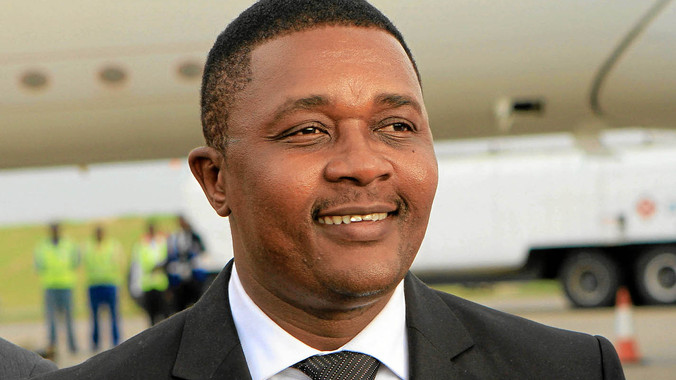UCT students demand free education for all

Cape Town — University education must be free for everybody by January 2017, UCT student leader Mlingane Matiwane said.
“We are not protesting cows and have no intention of picketing every year,” Matiwane told students assembled on a lawn at the university, after they rejected an invitation to join a picket by lecturers and other students at Parliament.
Reading a statement, he said they wanted nothing to do with the picket, and said an email by Vice Chancellor Max Price inviting the UCT community to join the picket was astounding. He said Price was responsible for the suspensions, expulsions and interdicts of several students.
“What does it mean, for instance, to condemn protest action over the last 18 months and now call on students to join them in protest?” asked Matiwane.
He said it was Price who had submitted to the fees commission that UCT needed an 8 percent fee increase.
The estimated 200 students, listening and clicking their fingers in support of the statement Matiwane read, demanded that lecturers remove any affiliation to the student movement from their communications. They should remove any of the student movement’s Fees Must Fall-related hashtags from university statements and tweets.
He said the deanery of the Faculty of Health Sciences had called for the picket to Parliament. He told the students that after the Dean’s Forum on Student Protests, students had met and consolidated four demands to be presented to government.
They wanted free, decolonised education, doubling of spending on higher education to 1.5 percent of the GDP, and commentary on and acknowledgement of their demands by next Tuesday, plus a plan for free education by January 2017.
Finally, they wanted clarity on the return of suspended UCT students. This relates to a group of students who, in May, participated in the
“Shackville” protest over the shortage of student accommodation, and who allegedly defaced statues and paintings of colonial and apartheid-era figures.
GroundUp reported that the five students were: Alex Hotz, Masixole Mlandu, Chumani Maxwele, Slovo Magida, and Zola Shokane.
Students believed government was not taking them seriously and was watering down and sidelining their demands. They didn’t want to talk about the rise and fall of fees as a commodity anymore and wanted all education to be free from pre-school.
They questioned how the university could afford the security used to keep them at bay when it said it was so short of money.
“We demand clarity as to why free education cannot be achieved, but the militarisation of a campus can,” the statement continued.
There were many familiar faces in the group, such as suspended politics student Masixole Mlandu, who, earlier this year, led a campaign questioning the presence of colonial era works of art and sculpture on campus.
Also present were some faces from the “Shackville” protest.
They were part of a group of students who stormed the parliamentary precinct during then finance minister Nhlanhla Nene’s mid-term budget speech on October 21. Police pushed them back using rubber bullets and stun grenades.
On October 23, President Jacob Zuma announced a fee freeze at tertiary institutions for 2016 and an inquiry into university fees. On Monday, Higher Education Minister Blade Nzimande announced that poor pupils and those from homes with an annual income lower than R600 000 a year would not see fees increased. He left it up to universities to announce their own increases, up to a maximum of 8 percent, for students who fell outside those categories.
A call to show solidarity with students at Stellenbosch University and the University of the Western Cape was made before students dispersed.
Following the picket at Parliament, Price said a plan on funding higher education institutions was needed by year end so it could be implemented by January 2018.
He said at the heart of the picket was the university’s plea to Parliament to help it find a solution to the ongoing unrest, but, more fundamentally, the funding of higher education.
He said in a statement that he was thankful for Nzimande’s moratorium on fee increases for 2017, but that it was a short-term solution.
“We will face the same issues every year. We must find a longer-term solution, in terms of investment into higher education that will also help us with bringing the unrest to an end.”
He said the Heher Commission’s timelines “might only have an actual impact in 2020, if we are lucky”.
The Commission of Inquiry into Higher Education and Training (fees commission), chaired by Judge Jonathan Heher, is looking into the feasibility of free tertiary education in South Africa.











Comments